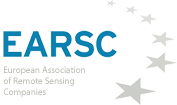The article with that title in the Economist last week left me thinking about the impact on our sector. The empire concerned is Silicon Valley and the Geeks are those who have made their money in early internet ventures and which now form the main source of new venture-capital funding.
The author describes how companies in the area are worth over €3 trillion, yet of those which have not yet gone public (IPO’d) or been bought out by other larger companies such as Google, Microsoft etc, a large number are privately owned. Whilst in 2000 companies were coming to the market (as an IPO) on average 4 years after start-up, today it is 11 years. So it is often young, technology-savvy, private investors who have made their money earlier in the dotcom bubble who are financing the firms of today and tomorrow.
The Economist wonders if this will lead to problems in the future as, without the pressure of public oversight, a lot of this capital is probably being misallocated ie higher risks are being taken than traditional capital from Wall Street would accept and which will not lead to profitable return. They also point to the lack of transparency as a result of private ownership and hence the propensity to avoid paying taxes and other social obligations through the ability to move revenues and resources around. But this is the future and today we see this “new” capital also being deployed in the EO services sector in Europe; but as industrial investments not merely financial ones.
Two recent examples illustrate this quite clearly as I wrote about in my last blog; Deimos Imaging acquired by Urthecast, Blackbridge/Rapideye being acquired by PlanetLabs. Further back, in 2012, the Spanish GIS/mapping company CartodB was acquired by ON24 a large Silicon Valley based company and, whilst many of the technical capabilities remain in Spain, the company is now based in New York and all the non-technical management positions are based there. As was reported in start-up beat in September last year:
A Q&A with CartoDB VP of Marketing Álvaro Ortiz. The New York City-based start-up, which offers an open source spatial mapping application, announced earlier this month the closing of an $8 million Series A funding round. It was founded in 2012 by Sergio Álvarez-Leiva and Javier de la Torre.
Hence future investment decisions and all the returns are taken outside of Europe even if the technical jobs remain. I am sure there must be other examples as well. Hence European value-added companies are being squeezed with the data, the software and the IT platforms all becoming dominated by larger US companies.
Is this a good thing? It highlights the strength and desirability of European technology. But it also shows the lack of risk appetite from European investors. In Europe I believe we have plenty of innovators and entrepreneurs, but we only have the “old” money which is far more risk averse and less technology oriented. The “new” money is not very much available in Europe. In the short term, it can be good news for the companies wishing to develop, but in the longer-term it means that Europe risks to miss out on the EO services sector and that most of the returns will end up in Silicon Valley.
What can we do? Should we do anything? After the investments made in Europe over the last 2 decades and especially that now being made in Copernicus, personally I would be very disappointed if we cannot foresee at least one player capable of competing in the global market. I should like to see a European platform emerge which is not beset by fractional interests of the Member States. Can we do this? I am not sure but if we do not try, the fruits of decades of investment risks to be lost.
Am I being too pessimistic? Please feel free to comment and discuss on this and any other issue. At EARSC we shall continue to fight for the European EO services sector and all views and contributions are welcome.

This page has no comments.